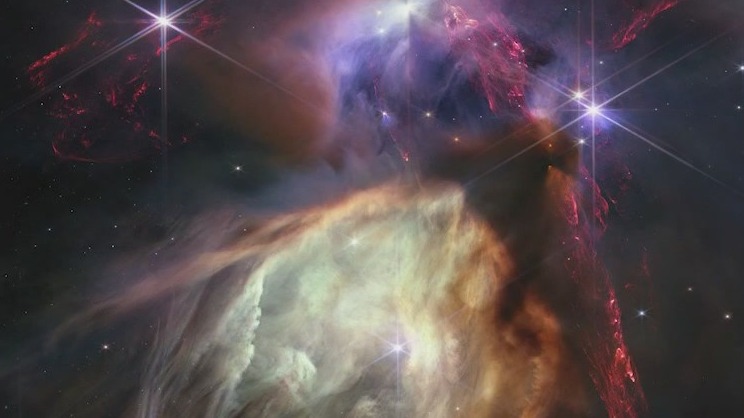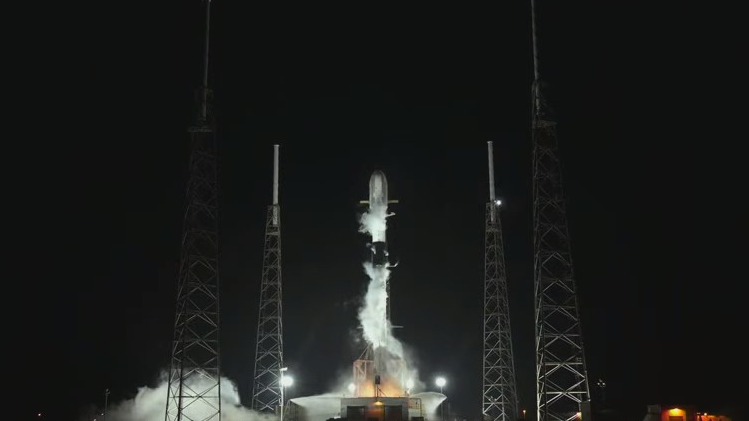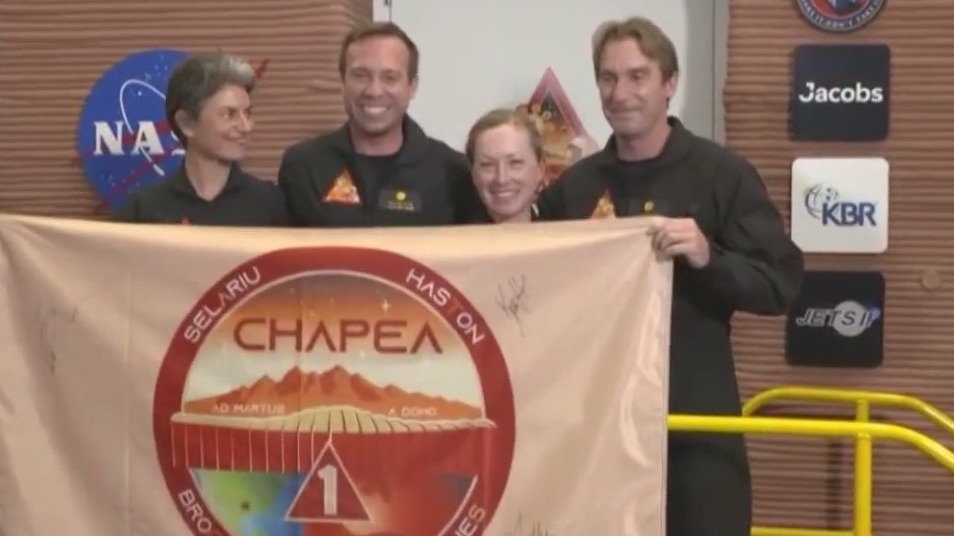Florida city is first in the state to become certified International Dark Sky Community
A city in Florida has officially become a certified Dark Sky Community joining 200 other communities in the effort to protect the environment.
Why the Northern Lights this week were a bust: Curbing misinformation
Over this past weekend, a story made the rounds that was predicting "widespread" and "brilliant" Northern Lights several days away for much of Canada and the northern U.S. Here's what it got wrong.
These updated astrovans will carry Artemis crews to the launch pad
The arrival of the new vehicles furthers NASA's goal of returning astronauts to the moon under the Artemis program paving the way for more missions to space.
Kennedy Space Center offers ultimate launch viewing package for visitors: Get ready to feel the heat!
Space fanatics can now take off to get their hands on a ticket to witness a new launch up close, and personal at the Kennedy Space Center.
NASA marks the James Webb Space Telescope’s first year of science with release of new image
The image, captured on Webb’s telescope is a small star-forming region in the Rho Ophiuchi cloud complex – the nearest star-forming region to Earth.
New image from James Webb Space Telescope
NASA shared a new image from the James Webb Space Telescope.
NASA’s Artemis crews to ride in style as new fleet of vehicles arrive at KSC
When the Artemis astronauts prepare to shuttle out to the massive moon rocket at Launch Pad 39B, they will be rolling in style inside a new fleet of vehicles that just arrived at NASA’s Kennedy Space Center.
NASA discovers most distant black hole with potentially more lurking in deep space
A Texas-led research team says this black hole is at the center of a galaxy created a mere 570 million years after the Big Bang.
SpaceX launches Falcon 9 rocket Sunday night from Cape Canaveral
SpaceX successfully launched its Falcon 9 rocket launch from Cape Canaveral on Sunday night.
Late-night SpaceX launch from Cape Canaveral
SpaceX successfully launched the Falcon 9 rocket, which landed on a ship at sea.
Solar storm forecasted for Thursday could bring Northern Lights to 17 states
This solar storm is part of an 11-year solar cycle that’s making the Northern Lights visible in places farther to the south. Here's where auroral activity is forecast.
Look up at the night sky for these July celestial events
Four planets will shine brightly for optimal skygazing opportunities, and the Full Buck supermoon comes early on July 3.
World UFO Day: New investigations show growing acceptance in science, government
Have aliens been confirmed yet? Well, no – but the expert work to identify hundreds of UFOs has accelerated in the last year more than ever. Here’s a look at where some investigations stand this World UFO Day.
What is the dark universe? A European space telescope just launched to find out
Scientists hope this telescope will give insight into the dark energy and dark matter that make up most of the universe and keep it expanding.
Saturn’s rings glow in new image captured by James Webb telescope
Saturn’s atmosphere contains methane gas which absorbs sunlight, unlike its rings which are made up of billions of small chunks of ice and rock and appear brighter in the image.
Heads up: 7 planets will be in retrograde this summer
The planet Mercury is in retrograde most often because it's the fastest planet traveling around the sun, NASA explained.
Building blocks for life found in space by NASA’s James Webb Space Telescope
Methyl cation was found in a young star system with the protoplanetary disk d203-506, located about 1,350 light-years away in the Orion Nebula.
Virgin Galactic announces crew members for first commercial flight
Virgin Galactic flights to space for ticket holders will begin in August.
4-person crew sealed in Mars simulator
A crew of four volunteers have begun their mission to stay inside a habitat for the next 378-days. The first CHAPEA crew began their journey on Sunday evening at NASA Johnson Space Center in Houston.
‘Glistening’ cluster teeming with stars captured by Hubble telescope
Globular clusters such as the one captured by the Hubble Space Telescope can contain hundreds of thousands of stars.




















